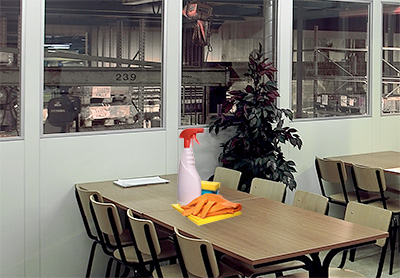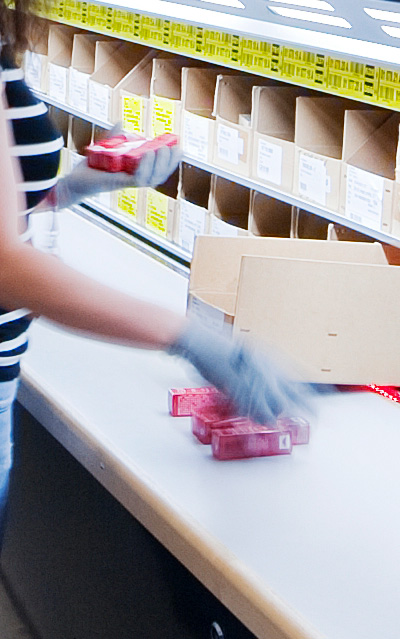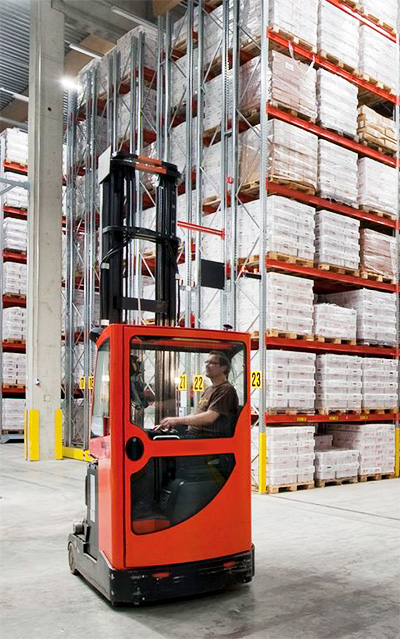 But the ability of the warehousing and logistics industry to remain operational and keep an uninterrupted supply of essentials – such as food, medicine and personal protective equipment – has never been more important.
But the ability of the warehousing and logistics industry to remain operational and keep an uninterrupted supply of essentials – such as food, medicine and personal protective equipment – has never been more important.
To remain operational, while at the same time keeping staff safe, is always the number one priority in warehousing. However, this has taken on even greater significance with the necessity of keeping the virus at bay, through adding an extra layer of precautions.
Focusing on three main areas – site, equipment and people – and putting measures in place to ensure social distancing and cleanliness must be the basis of any Covid-19 safety plan.
- Site – examine the site set-up and what changes might need to be made to offer Covid-19 security.
- Equipment – is equipment usage and handling meeting guidelines, and what cleaning regime is needed.
- People – what training do people need in, for example, social distancing protocols, hygiene and materials handling procedures.
Five tips on keeping a safe and operational warehouse during Covid-19
 1. Adopt best practice
1. Adopt best practice
Learning from others is always a good starting point when drawing up any safety protocol, including one to cover the Covid-19 pandemic and this can be achieved by talking to peers in the sector.
There are also health and safety specialists whose services can be engaged to advise on safety measures that should be adopted. These might range from simple measures such as displaying information posters reminding staff about social distancing and handwashing, to reconfiguring a warehouse to introduce a one-way system.
National organisations, such as the HSE in the UK, offer extensive advice on working safely during the pandemic.
2. Cleanliness
An essential element of keeping a warehouse free of Covid-19 is cleanliness – that includes people’s attention to hygiene and also cleaning and maintaining equipment.
Regularly cleaning and disinfecting equipment will help reduce the risk of infection and this cleaning regime needs to be incorporated into the warehouse workflow, to ensure it keeps any interruption to a minimum.
There is also a need to ensure that essential checks are carried out on equipment, while at the same time observing social distancing protocols. It is not an option to cut corners and avoid these checks, because this would equally compromise the safety of the warehouse operators.
Advice, information and training for people in your warehouse’s Covid-19 regulations (which might include guidelines on handwashing, observing any one-way system and social distancing) is essential.
It is also important to ensure visitors to the warehouse are fully aware of the Covid-19 protocols and they abide by them. Display posters will help reinforce this for staff and visitors alike.
3. Health checks
It is essential that staff take responsibility for their health. If they display any symptoms of Coronavirus, they will need to stay home and to self-isolate. Some warehouse operations are taking temperature checks of staff. This is a step you may wish to consider.
 4. Issue personal protective equipment
4. Issue personal protective equipment
There is a range of personal protective equipment you could invest in for your staff, which will help minimise the risk of spreading and catching Covid-19. For example, you may ask your warehouse operatives to wear masks or vizors. Aprons and disposable gloves are another option. First assess the proximity of staff, how effective any equipment might be, and then introduce it as part of your safety measures.
5. Futureproof your decisions
One thing the Coronavirus pandemic has taught us is to be prepared by having systems, a setup and equipment to help ensure warehousing and logistics can remain operational. It has also highlighted the importance of ensuring any buying and investment decisions have long-term relevance.
For example, if you’re investing in new forklifts, think about ensuring they come ready equipped with measures to prevent the spread of airborne dust particles. If you’re replacing manual hand pallet trucks, it makes sense to opt for electric models, which will help reduce the risk of strain or injury to your operators. Investment decisions with an eye to the future make sense.
By adopting these measures, as a warehouse operator you will mitigate the risk of Covid-19 to your business and to your staff. Warehousing and logistics are the backbone of the system of keeping supplies flowing. Following our advice will also help futureproof your business.
For more information about warehouse safety, or to talk to us about any of our adjustable pallet racking services, please get in touch.